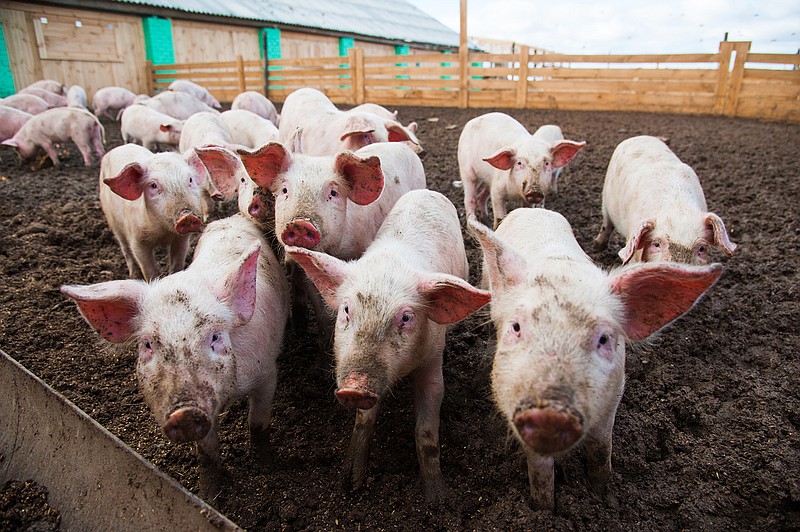When is a pork chop not a pork chop?
In March, travelers to the Kansas City airport - back when there still were travelers to the Kansas City airport - were greeted by an advertising sign reading "Pork BBQ: It comes from a pig, not Silicon Valley."
Doubtless, a lot of those travelers were confused. But a select few, including everyone who flew in to attend a meeting of the National Pork Producers Council, knew that it was an allusion to a controversy that is quietly raging.
It is a question of nomenclature - that is, the naming of things. Companies that make plant-based foods that taste like meat want to use familiar terms to describe their products. Impossible Pork, for instance, is made from plants, but it tastes like pork.
Companies that produce pork are up in arms. They say only foods that are made from actual pigs should be described as pork. Anything else is an attempt to fool the consumer.
"There is a vegetarian product that is mimicking pork rinds, and they call it 'pork rinds' on the label. I can't stress enough that these things just aren't pork," said Dan Kovich of the National Pork Producers Council.
"They say imitation is the sincerest form of flattery. That's just not what it is."
But companies that use plants to create food that tastes like meat strongly disagree.
"Producers and consumers have free-speech rights to use language in the way everyone understands. When you call something a veggie burger, everybody knows what you're talking about.
"It's a consumer confusion issue that doesn't exist. It's kind of a manufactured controversy," said Nigel Barrella of the Good Foods Institute, a nonprofit organization that advocates for the innovation and research of new foods.
Barrella said the meat producers are playing "language police," trying to restrict the use of generalized terms such as "patty," "sausage" or "bacon."
But the pork council's Kovich said their arguments are not that strict. If the name makes it clear that the product does not use any meat, his organization will not object, he said.
"The word 'imitation' has a clear meaning. It is very clear that it is imitating another product," he said.
"The 'imitation' nomenclature is relatively well-established. If that's where the entire industry lands as the acceptable point, I think we could accept that," he said.
Barrella, of the Good Foods Institute, said the terms being used now are good enough and should not confuse anybody. All the consumer has to do is turn over the package and read the label, he said.
But Kovich said the pork council would fight any plant-based food that used one word in particular.
"The word 'pork,' which has always had a very specific meaning, is our line in the sand," he said.
"We have a long history in this country and a solid body of law that says no, you can't call a product whatever you want. I can't take a bottle of water and put a label on it that says 'coffee' and sell it as coffee. I think the first amendment argument does not hold."
The question has already landed in the courts.
Missouri has the strictest law in the country regulating the labeling of plant-based foods. In Missouri, it is now a criminal offense to use a meat term in labeling a vegetable product; offenders could be fined or even sent to jail.
The first court challenge to this law, filed by the makers of Tofurkey, the American Civil Liberties Union and others, was decided in favor of the state; that is, the law is still in effect.
That ruling is now being appealed.

